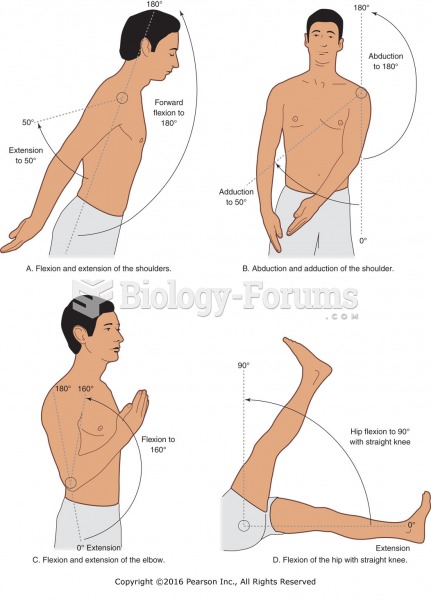|
|
|
Most childhood vaccines are 90–99% effective in preventing disease. Side effects are rarely serious.
Disorders that may affect pharmacodynamics include genetic mutations, malnutrition, thyrotoxicosis, myasthenia gravis, Parkinson's disease, and certain forms of insulin-resistant diabetes mellitus.
More than 34,000 trademarked medication names and more than 10,000 generic medication names are in use in the United States.
Nearly 31 million adults in America have a total cholesterol level that is more than 240 mg per dL.
Cutaneous mucormycosis is a rare fungal infection that has been fatal in at least 29% of cases, and in as many as 83% of cases, depending on the patient's health prior to infection. It has occurred often after natural disasters such as tornados, and early treatment is essential.







